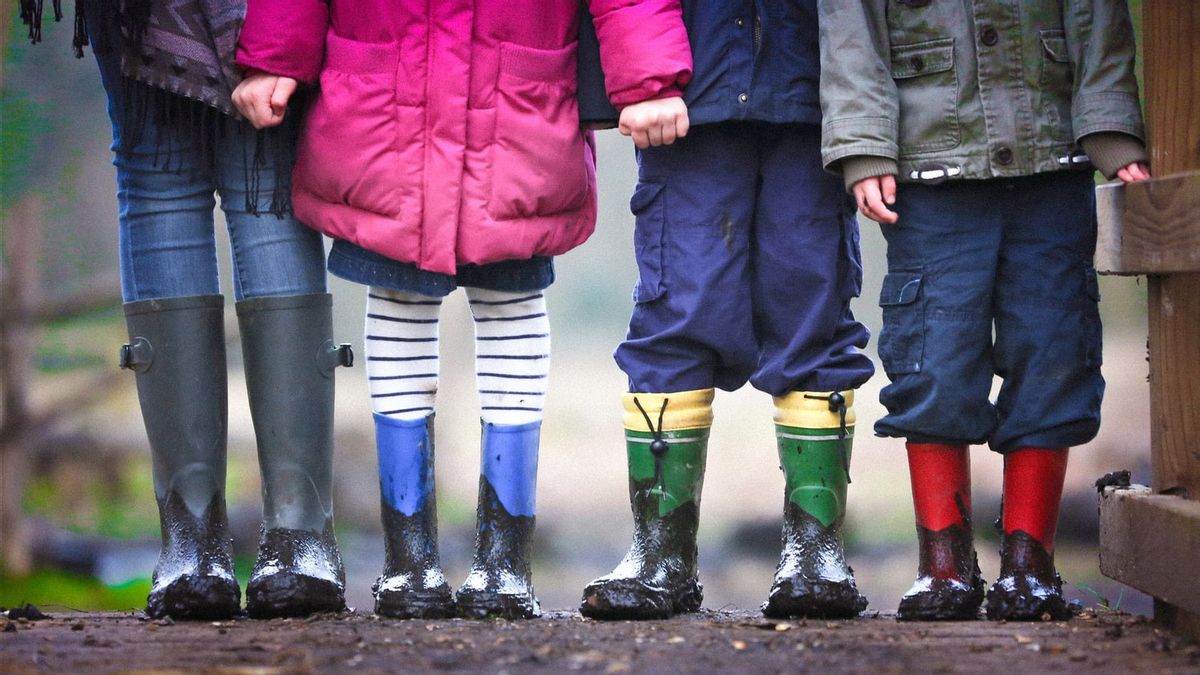JAKARTA - Epidemiologist from Griffith University Australia, Dicky Budiman, stated that children are the most vulnerable group in facing the situation of expanding a disease outbreak, either globally or nationally.
"My analysis and predictions regarding the latest global situation both regionally and nationally, as a researcher on global health security or global health resilience, I convey that this pandemic situation has direct and indirect impacts," said Dicky, quoted by Antara, Friday, May 27. "This includes when we don't take lessons and don't fix them, which means we invite the rise of old epidemics and new plagues," continued Dicky. Children are the dominant party who is most vulnerable to an epidemic. Children are magnets and have the potential to be the origin of a modern epidemic.
This is because many children, especially those under the age of six, tend not to have immunity to a disease, and it seems that there is a decrease in antibodies during a pandemic such as COVID-19.
In addition, the emergence of old epidemics such as polio, hepatitis or new outbreaks such as monkeypox is caused by changes in human behavior that may become more vulnerable and neglect health and environmental hygiene, thereby triggering vulnerability to one or more populations. .
Another thing that causes vulnerability to children is that many countries provide relaxation of health protocol rules when facing a pandemic, without having time to improve their health systems and mitigation responses that are not yet considered optimal.
Dicky predicts that if this continues, the world will not only face one or two disease pandemics, but there will be many extraordinary events (KLB) from old diseases, even in countries that are thought to have no potential for outbreaks.
"We have even experienced outbreaks of monkeypox, hepatitis, hand, foot and mouth disease (HFMD), which if we look at one by one the prevalence is increasing. For example, HFMD in Malaysia was compared to last year alone or the previous year at least twice, plus monkeypox, which was previously endemic in Africa, this tends to be endemic outside Africa," he said.
Dicky also stressed that although the world is trying to tighten 3M again, such as wearing masks, washing hands and keeping a distance or planting trees to avoid zoonotic potential, these efforts will not necessarily improve the situation that is already systemized as it is today.
He also warned that if each party did not take lessons from the COVID-19 pandemic, continued to ignore and ignore vulnerable groups, then an outbreak would soon occur due to local outbreaks at the national and regional levels. Therefore, each country is expected to collaborate more comprehensively, slowly. but sure. Especially in improving detection, response, laboratory capacity, human resources, environmental sanitation, environmental change and healthier behavior. received a lot of KLB cases,” said Dicky.
The English, Chinese, Japanese, Arabic, and French versions are automatically generated by the AI. So there may still be inaccuracies in translating, please always see Indonesian as our main language. (system supported by DigitalSiber.id)








